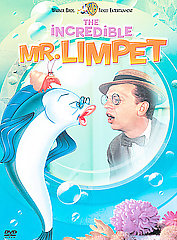–
I go to the library fairly often. My job is one of solitude, of aloneness, and there are times when I just want to be among people. Watch them walk, listen to them talk, see what they are up to.
And the other thing about libraries is: that’s where the books are.
While I usually try to stay current, there are times when — well — it’s nice not to know. Not get hung up on what’s happening out there. The buzz, the trends, the hype, the books that make me think: Why, why, why? The work for any writer begins, primarily, with what’s happening in here. The rumblings of the head & the heart.
I am newly resolved to take ten picture books out of the library every time I visit. Read them, think about them. Be inspired or annoyed.
Here’s three from a recent batch that I particularly enjoyed . . .
–
The great Kevin Henkes does it again. Can he do no wrong? It occurs to me that he’s probably helped by a wise agent and discerning editors who help bring out the best in him . . . while maybe holding off the crummy ideas. Because even Kevin Henkes must have crummy ideas, right? Right?
Oh, God, I hope so.
The book begins:
There are big things and little things in the world.
The text is spare and the illustrations are simple and yet resonant. He’s so good. He has a full page illustration of pebbles and it could break your heart. It’s a small miracle in a book full of them. Somehow Henkes embues heart and soul into everything he does, that’s what I love about him.
–
–
But for this book, it’s the Voice that I so admire. He simply strikes a tone — kind, knowing (without being a know-it-all), gentle and wise.
This is a beautiful, lovely book.
–
–
Confession: I love Audrey Vernick. She’s my pal and she’s the greatest. If you don’t like Audrey, then you are dead to me. It’s that simple. But: Confession II: I don’t love everything she’s ever done.
Besides writing solo, Audrey has successfully teamed up with Liz Garton Scanlon, who is such a fine craftsperson with the soul of a poet. A writer’s writer. They made this book together.
And for me, this might be their best book yet. It’s expertly crafted and takes place in a world that will be instantly familiar to young readers.
It begins:
Room 107 has a cockatiel. Room 108 has a chinchilla. Even the Art Room has a bearded dragon!
[Writers: Not the rule of three, the comfortable pattern that readers enjoy.]
But in Room 109, Arlo’s classroom, there is a plant. A mostly green, hardly growing, never moving plant.
–
–
Again: the Voice here is unerring and the story unfolds with (mostly) realism and calm and great affection for Jerry (that’s the name of the plant).
Question: Is Voice the single most important aspect of a children’s book? Maybe yes.
Warmly illustrated by Lynnor Bontigao.
–
–
I’ll be honest. I am sick to death of overt message books. So obvious and pedantic. So adult-centered. And yet, of course, there’s nothing wrong with signals. Every story sends signals, embedded with values. So it becomes a matter of craft. Of art. How do you send the message without, you know, hammering someone over the head with it? So that maybe when it comes, you didn’t completely see it coming?
But wait.
First: The illustrations in this are tremendous. The colors rich — not cartoony — and not too vibrant. Carson Ellis is very, very good. You know instantly that you are in good hands.
–
–
There’s so much art and skill in how this book is put together. It begins with a single-page illustration of a window, a sky, some trees, two birds. The next page is a double spread: a few homes, more trees, and small (but centered) a mother and child about to take a dog for a walk. No words yet.
(I guess it really isn’t about a kitten!)
And then, whoa, the title page. Cool.
It begins:
This story is not about a kitten.
Turn the page, close up of a kitten cowering under a parked car:
A kitten, hungry and dirty, scared and alone, meowing sadly, needing a home.
The story builds cumulatively as the different members of the community step forward and come together in compassion, and affection, and common decency.
So, yeah, the message does come and it is pretty straight-forward. But how we get there, Dear Reader, that’s the difference.
–
This story is about the
stopping
and listening,
the holding
and bringing,
the offering
and asking
and the working together
it takes, sometimes, to get there.
–
An absolute marvel of a book.
–
–






















